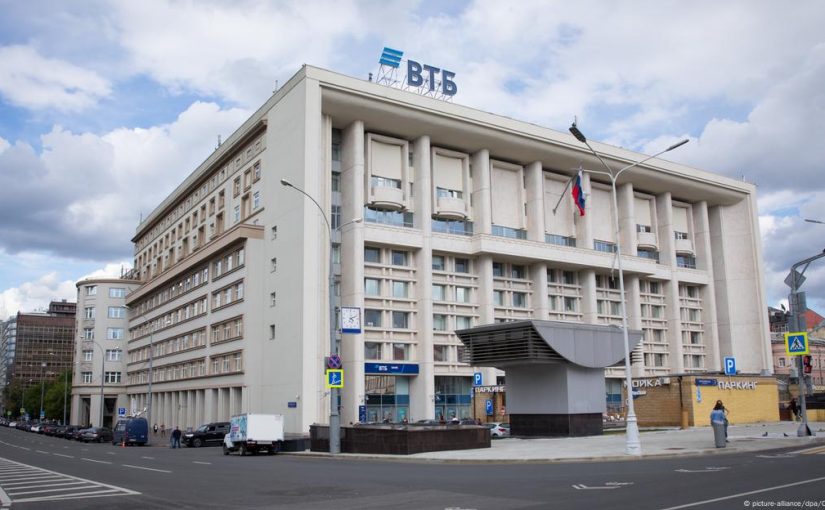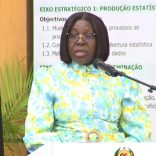Mozambique: Digital data 'oil of 21st century' for economy, social growth - govt
Mozambique: Out-of-court settlement with banks is “rational”

File photo: DW
CIP investigator Borges Nhamirre considers that the extrajudicial agreement between the Mozambican state and three banks in the dispute in London over “hidden debts”, is “good” and “does not harm” Mozambique.
The new agreement provides for a reduction in “state exposure” from US$1.4 billion to US$220 million. However, the Centre for Democracy and Development (CDD) considers that the agreement harms the state and protects leaders of the Front for the Liberation of Mozambique (Frelimo), the party in power.
In an interview with DW Africa, Borges Nhamirre, researcher at the Centre for Public Integrity (CIP), makes a different assessment and considers that the Mozambican state did the right thing in signing these agreements. He also says that the government’s strategy since the process began five years ago has worked well.
DW Africa: Do you think the sentence in London will dictate the defeat of the Mozambican state?
Borges Nhamirre (BN): This case started a long time ago – Mozambique started the process in 2019. A lot has changed since then. Since then, the number of defendants sued by Mozambique has reduced due to agreements between Mozambique and Credit Suisse, meaning that Credit Suisse and its subsidiaries have left the case. So, the number of defendants has already been reduced, but the death of Iskander Safa [owner of Privinvest] does not keep him away, because his assets will answer, as this is a civil liability case. The VTB agreement does not greatly affect the case because Mozambique had not initiated any proceedings against VTB. It had happened that VTB had initiated proceedings against Mozambique. So, this case also ceases to exist. At this moment, in technical terms, it means that the sentence announced by the court will decide the relationship between Mozambique and Privinvest, plus the three former Credit Suisse employees.
DW Africa: In other words, there is no great impact of the agreements between the Mozambican government and the banks in this process?
BN: No. The main impact is the departure of three defendants, which are the banks of the Credit Suisse group, essentially, nothing else. Because, in total, it was a case with 12 defendants, from whom Mozambique demanded compensation. So, with the departure of Credit Suisse, the number of defendants drops, but it also lowers the amount that Mozambique was demanding.
DW Africa: Non-governmental organizations in Mozambique understand that extrajudicial agreements protect Frelimo, the party in power. If true, how can the interests of the Mozambican state be protected?
BN: Technically, these agreements are very good for Mozambique, because it means that Mozambique is no longer in default. Technically, theoretically, it means that Mozambique once again has access to the international capital market. It is true that agreements are not enough. But I think it’s a good deal. Regarding the Frelimo leaders, they were not defendants in that process in London. The people we know who are defendants are defendants in the case in the United States of America, who are also not necessarily leaders of Frelimo, apart from Manuel Chang, they are people who held relevant positions in the State.
So, I think that that statement [by the CDD] makes a lot of sense for the legal profession, but, from a technical point of view, the evil of the out-of-court settlements is not necessarily there. I think we can say that these settlements were bad for Mozambique, because Mozambique has to pay money, it has to pay around US$366 million to reach these agreements. But even so, if we compare it with the case of the Ematúm debt, a case in which there was no settlement, Mozambique has to pay much more.
DW Africa: In other words, do you also agree that so much investment in this London case was worth it, given that now the government reaches out-of-court settlements with those they accused?
BN: If Mozambique had not started this case in 2019, these settlements would not have been reached. So these are not voluntary agreements: the parties felt obliged to enter into an agreement – I mean the banks, because they were in court proceedings. In this aspect, Mozambique’s decision to initiate the process to force them to reach a settlement was entirely rational.













Leave a Reply
Be the First to Comment!
You must be logged in to post a comment.
You must be logged in to post a comment.